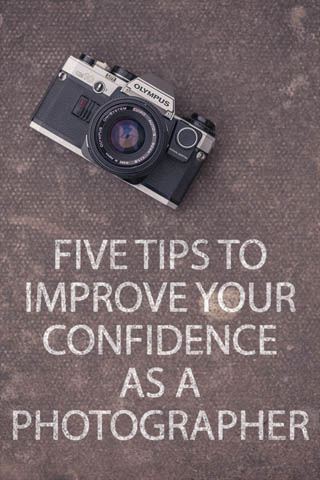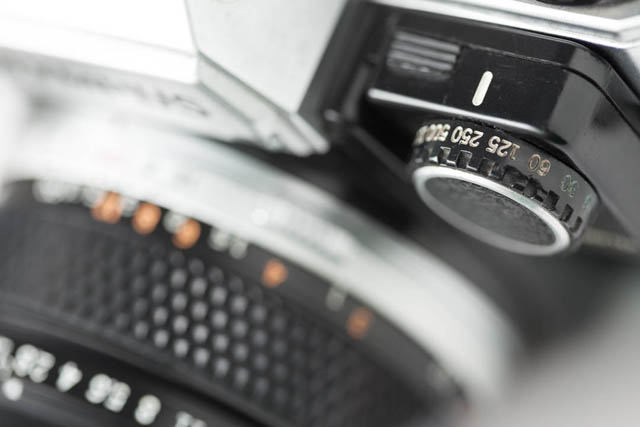Five tips to improve your confidence as a Photographer
Confidence as a photographer is important. If you're not confident, you can be worrying about getting the shot and whether other people will like your photos, rather than concentrating on the creative process. Whereas if you're confident, then your photography will be more stress free and enjoyable, which often also results in better images.
In this article we'll look five ways to help boost your confidence as a photographer, to keep you enjoying photography and improving your skills.
Practice
The number one way of improving both your confidence as a photographer, and your photography skills, is practice. The more you practice something, the easier it becomes. You get more used to taking photos. As the same potentially problematic photographic scenarios pop up again and again, you get used to dealing with them, and so they won't throw you so much.
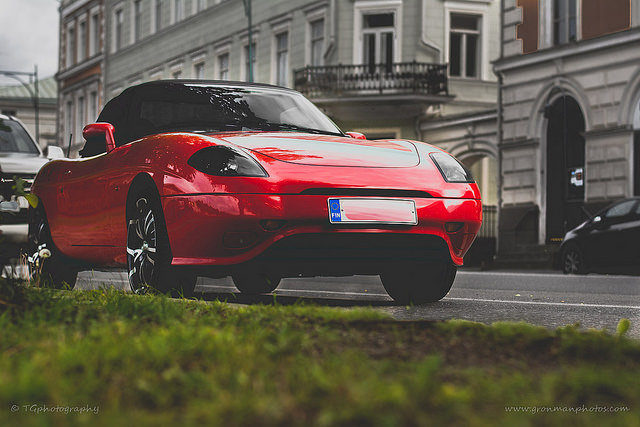
not my forte by gronman www.gronmanphotos.com on Flickr (licensed CC-BY)
And talking about potentially problematic photographic scenarios, it is a good idea to purposefully put yourself in these scenarios. If you've never taken a nice shot of a backlit subject before, then try it. Read advice online, and practice until you get it right. When you get it right, it gives you that confidence that should you come across the same situation again, you know how to deal with it and get a great image.
Learn your gear and settings
Tying in somewhat with the first point, you need to learn how to use your camera, and what all the different settings do. If you want to photograph a moving subject, but don't know what autofocus setting to use, it's going to knock your confidence (and your ability) to get a good shot.
Similarly, if you know what autofocus setting to use, but don't know how to set your camera to use that setting, you'll be fiddling around in your camera menus rather than confidently adjusting to the correct settings quickly.
Again, this comes down to practice. Read a section of your camera manual, then try out the settings you've just read about. Physically changing the settings and seeing what difference they make helps commit them to memory much better than just reading about them.
In turn, when you know what the different camera settings do, plus how to change them, this can make you much more confident in your photography.
Don't compare yourself to others
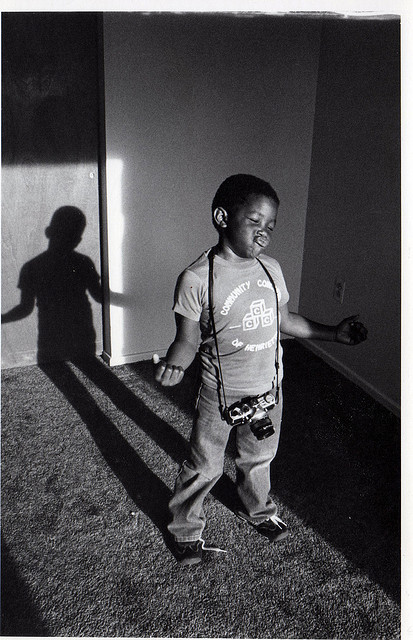
photography lesson by woodleywonderworks on Flickr (licensed CC-BY)
Looking at the work of other photographers can be very helpful. It can provide you with inspiration and ideas. Often photographers include technical information about both camera settings and what led up to the shot. This can be very useful in helping you improve your photography.
However, it is all too easy to look at all the great photos being constantly posted online, and think just how bad your own photos look in comparison. You need to remember that no matter how good you are, there will be thousands of photographers that consistently take better photos than you. And also remember that you consistently take better photos than the millions of people uploading their blurry phone photos to social networking sites.
You also need to take into account that most photographers only post their very best work online. If you look at a photographer's gallery you admire, you'll probably think their work is much better than yours. But that's because you're probably comparing their best with your average. Put together a gallery of only your very best images, and you'll likely find it compares quite well.
So, be inspired and learn from others, but don't use them to set the bar as for what you should be achieving.
Look back at your older work
A good way of boosting your confidence is to look back at your older work, and see just how much you've learned. When you think back to your photos before you became interested in photography, you probably would have been ecstatic to get photos of the quality of shots you're taking now.
Do note that the longer you've practicing photography, the further back you're likely to have to look to see a big difference. While we never stop improving, learning what the aperture setting does when first when first learning photography makes a much bigger difference to your photos than learning how to use frequency separation retouching techniques (for example) when you're more advanced.
Manage your expectations
Setting goals can be very useful in improving your photography. It motivates you and gives you something concrete to work towards. Just the process of thinking about what goals you want to achieve helps you think more about your photography and where it is you want to go with it.
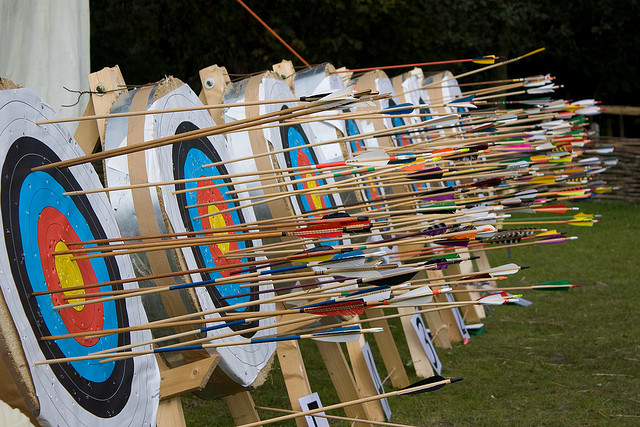
targets by Hans Splinter on Flickr (licensed CC-BY-ND)
However, you do need to manage your expectations. Setting a goal to learn how to become a wedding photographer and have 10 bookings by the end of the week is not realistic. If you set goals that too difficult to achieve, you can end up feeling demotivated, and it can hurt your confidence rather than helping it.
Of course, you don't want to set goals that are easy to achieve either, as otherwise you're not pushing yourself to improve. But do think carefully about any goals and the timeframe to achieve them in, to make sure they are do-able.
Being confident in your photography skills is important whether you're photographing for other people, or just photographing for your own pleasure. It means you're less likely to shy away from potentially tricky but rewarding photo opportunities, and can concentrate more on making the shot rather than worrying about it. By following the tips above you can be confident in your skills, and this will show through in your images.
